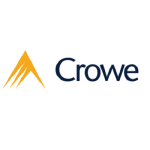On May 4 2022, the Inland Revenue Authority of Singapore (IRAS) published Advance Ruling Summary No 7/2022, relating to the taxability of the gain on the sale of an investment.
The issue considered by the IRAS was whether the gain from a partial disposal of the investment in Company Y is a capital gain in the hands of Company X.
Background
Company Y was incorporated by Mr and Mrs A and has been completely owned by both for more than 20 years. An unrelated party is interested in acquiring a partial stake in Company Y.
To ensure that Mr and Mrs A continue to retain management control of Company Y after selling a partial stake to the unrelated party, and as part of business continuity planning, Mr and Mrs A plan to transfer 100% of their shares in Company Y to a newly incorporated company, Company X.
The principal activities of Company X are those of investment holding. Company X will classify Company Y as a subsidiary in its books and Company Y will be its sole investment. At all material times, Mr and Mrs A are the beneficial owners of both Company X and Company Y.
Shortly after the transfer-in of 100% of the shares of Company Y, Company X will sell a partial stake in Company Y to the unrelated party and make a gain on the disposal of the investment.
After the proposed transaction, Company X will continue to hold the balance of the investment in Company Y and classify it as a subsidiary. Mr and Mrs A intend to retain management control of Company Y via Company X.
Ruling
Based on the specific facts and circumstances of the restructuring, the IRAS ruled that:
The gain derived by Company X from the partial disposal of the investment in Company Y is a capital gain and hence not taxable; and
In the event of a subsequent disposal of the remaining stake in Company Y by Company X, the Comptroller of Income Tax is not precluded from reviewing the specific facts and circumstances of the disposal to determine the taxability of any corresponding gain on the disposal.
Our comments
Gains from the disposal of shares will not be taxable if these gains are capital in nature. On the other hand, gains derived from the disposal of shares can be seen to be in the nature of income and subject to income tax if such gains arose from a trade or business carried on in Singapore.
There is no definition in the Income Tax Act 1947 (2020 revised edition) (ITA) as to what constitutes a capital gain. In addition, the terms ‘income’ and ‘trade’ are also not defined. As such, the nature of a gain or loss derived from the disposal of investments, such as shares, is determined by reference to common law.
The courts have applied several tests in determining whether a transaction is a trading transaction, and whether the gain from that transaction would count as income. These tests are commonly referred to as the ‘badges of trade’ and are generally applied in scenarios involving the sales of assets or properties.
Section 13W of the ITA provides for a tax exemption on gains arising from the disposal of ordinary shares if certain conditions are met. However, the gains arising from the transaction detailed above would not have qualified for the exemption scheme under section 13W of the ITA. This is because Company X did not hold at least 20% of the ordinary shares in Company Y for a continuous period of at least 24 months prior to the date of share disposal. This is why the ruling was sought by the taxpayer.
Although the IRAS did not indicate the rationale for the ruling, they probably considered the purpose of the transaction – Company X did not purchase the shares with the intention to trade, and the fact that the disposal was an isolated transaction.
It is also not clear whether the IRAS might have looked through Company X to the ultimate beneficial owners and given weight to the fact that the individuals had held the shares in Company Y for a long time, and intend to continue doing so.
Following the IRAS’ characterisation of the gain as capital, any transaction costs associated with the share disposal would also be capital in nature and not deductible.
Conclusion
If a company disposing of equity investments in another company is unable to take advantage of the section 13W exemption scheme, it should determine the taxability of such gains based on the badges of trade and a consideration of the facts and circumstances of each case.
The advance ruling system gives the taxpayer the means to obtain tax certainty on how a gain from a disposal of equity investments will be treated for income tax purposes.













